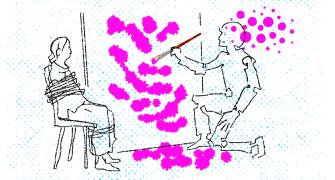The Tata group is strengthening the management super-structure within its group companies by extending the post of vice-chairman to three more companies - Tata Motors, Tata Steel and Tata Consultancy Services.
Currently, three other group companies already have non-executive vice-chairmen - R K Krishna Kumar in Tata Tea and Indian Hotels and R Gopalakrishnan in Tata Chemicals.
Ravi Kant's appointment to that post in Tata Motors added one more this week. The list will expand by October with two more vice-chairmen. It is widely expected that the managing directors of Tata Steel, B Muthuraman, and Tata Consultancy Services, S Ramadorai, who are due to retire in September and October respectively, will take over in the same companies as vice-chairmen.
The appointments will be in line with the succession policy in the group, which has stipulated 65 years as the retirement age for executive director and above. Those given an extension are inducted as non-executive board members and can continue till they are 75 years old.
A Tata Sons spokesperson declined to comment on the issue.
Apart from the fact they will bring down the average age of vice-chairmen in the group to 67 from the earlier 69, the group sees many other benefits from this super-structure. Each of the prospective vice-chairmen has had a chequered track record in their respective companies and the group sees immense benefits from their association, senior executives said.
Krishna Kumar, for example, is still the guiding force of Indian Hotels and Tata Tea (he has been managing director of both the companies before retiring in 2003 after turning 65, though each has a full-fledged managing director & CEO.
Encouraged by the success of that experiment, the group is following that model after a gap of six years. Reason: while Tata Motors and Tata Steel are facing management and financing challenges arising from the acquisition of Jaguar Land Rover and Corus, India's largest software services company TCS has to cope with shrinking demand in its core overseas market.
For example, Ravi Kant's specific brief as vice-chairman will be to look after Jaguar Land Rover - so that the new managing director P M Telang is relatively free to look after other operational issues.
Group sources said the continued association of these senior executives with the companies made sense in the midst of the financial downturn that has cast a shadow on these three towering businesses of the Tata group. Tata Motors, Tata Steel and TCS together account for more than 75 per cent of the total revenue and about 74 per cent of the profit of the Tata group.
The question that leading HR experts are asking, however, is whether this new super-structure under chairman Ratan Tata will undermine the powers of the managing directors.
The Tatas felt that shouldn't be a problem for two reasons: one, the model had worked well in both Tata Tea and Indian Hotels; and two, each of the people concerned had a great track record, so the managing directors who were handpicked by them would know they would gain from their presence (for example, N Chandrasekaran, the MD-designate of TCS, earlier spent a year as executive assistant to Ramadorai).
The only person, who has not been appointed vice-chairmen in recent times after retirement, is Homi Khusrokhan, former managing director of Tata Chemicals. He, however, continues to be a director on the boards of other Tata companies, such as Rallis India.
In any case, the Tatas have been known to not let their senior people go even after they retire from their executive posts at the age of 65. For example, N A Soonawala, 74, continues as non-executive vice-chairman of Tata Sons after retiring as finance director.
J J Irani, who retired as managing director of Tata Steel in 2001 after holding that post for almost a decade, was appointed director of Tata Sons. This was also the case with his colleague on the board, Ishaat Hussain, who retired as senior vice president and executive director of finance at Tata Steel.








